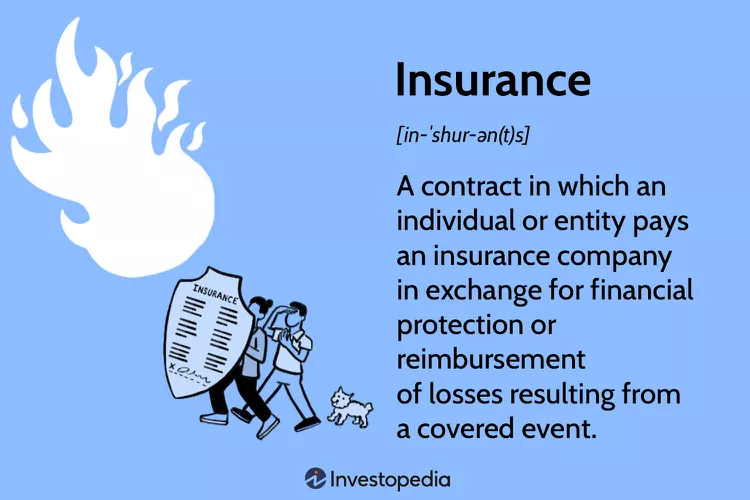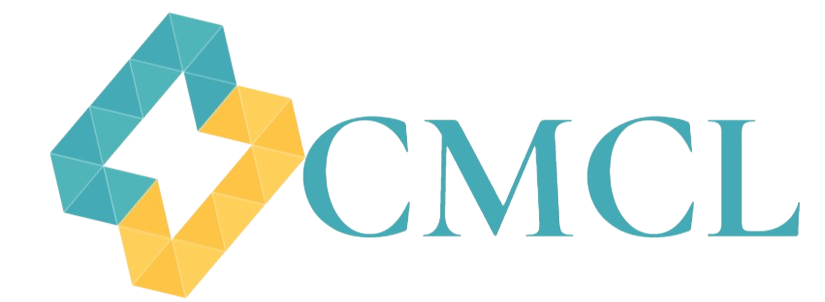Insurance

Insurance
Insurance is a contract, represented by a policy, in which a policyholder receives financial protection or reimbursement against losses from an insurance company. The company pools clients’ risks to make payments more affordable for the insured. Most people have some insurance: for their car, their house, their healthcare, or their life.
Insurance policies hedge against financial losses resulting from accidents, injury, or property damage. Insurance also helps cover costs associated with liability (legal responsibility) for damage or injury caused to a third party
KEY TAKEAWAYS
Insurance is a contract (policy) in which an insurer indemnifies another against losses from specific contingencies or perils.
There are many types of insurance policies. Life, health, homeowners, and auto are among the most common forms of insurance.
The core components that make up most insurance policies are the premium, deductible, and policy limits.

How Insurance Works
Many insurance policy types are available, and virtually any individual or business can find an insurance company willing to insure them—for a price. Common personal insurance policy types are auto, health, homeowners, and life insurance. Most individuals in the United States have at least one of these types of insurance, and car insurance is required by state law.
Businesses obtain insurance policies for field-specific risks, For example, a fast-food restaurant's policy may cover an employee's injuries from cooking with a deep fryer. Medical malpractice insurance covers injury- or death-related liability claims resulting from the health care provider's negligence or malpractice. A company may use an insurance broker of record to help them manage the policies of its employees. Businesses may be required by state law to buy specific insurance coverages
There are also insurance policies available for very specific needs. Such coverage includes business closures due to civil authority, kidnap, ransom, and extortion (K&R) insurance, identity theft insurance, and wedding liability and cancellation insurance.

Types of Insurance
Health Insurance
Health insurance helps covers routine and emergency medical care costs, often with the option to add vision and dental services separately. In addition to an annual deductible, you may also pay copays and coinsurance, which are your fixed payments or percentage of a covered medical benefit after meeting the deductible. However, many preventive services may be covered for free before these are met.
Health insurance may be purchased from an insurance company, an insurance agent, the federal Health Insurance Marketplace, provided by an employer, or federal Medicare and Medicaid coverage.
Home Insurance
Homeowners insurance (also known as home insurance) protects your home, other property structures, and personal possessions against natural disasters, unexpected damage, theft, and vandalism. Homeowner insurance won't cover floods or earthquakes, which you'll have to protect against separately. Policy providers usually offer riders to increase coverage for specific properties or events and provisions that can help reduce deductible amounts. These adders will come at an additional premium amount.
Your lender or landlord will likely require you to have homeowners insurance coverage. Where homes are concerned, you don't have coverage or stop paying your insurance bill your mortgage lender is allowed to buy homeowners insurance for you and charge you for it
Auto Insurance
Auto insurance can help pay claims if you injure or damage someone else's property in a car accident, help pay for accident-related repairs on your vehicle, or repair or replace your vehicle if stolen, vandalized, or damaged by a natural disaster.
Instead of paying out of pocket for auto accidents and damage, people pay annual premiums to an auto insurance company. The company then pays all or most of the covered costs associated with an auto accident or other vehicle damage.If you have a leased vehicle or borrowed money to buy a car, your lender or leasing dealership will likely require you to carry auto insurance. As with homeowners insurance, the lender may purchase insurance for you if necessary
Life Insurance
A life insurance policy guarantees that the insurer pays a sum of money to your beneficiaries (such as a spouse or children) if you die. In exchange, you pay premiums during your lifetime.
There are two main types of life insurance. Term life insurance covers you for a specific period, such as 10 to 20 years. If you die during that period, your beneficiaries receive a payment. Permanent life insurance covers your whole life as long as you continue paying the premiums
Travel Insurance
Travel insurance covers the costs and losses associated with traveling, including trip cancellations or delays, coverage for emergency health care, injuries and evacuations, damaged baggage, rental cars, and rental homes. 10 However, even some of the best travel insurance companies do not cover cancellations or delays due to weather, terrorism, or a pandemic. They also don't often cover injuries from extreme sports or high-adventure activities.
